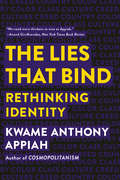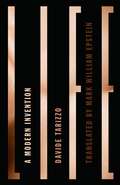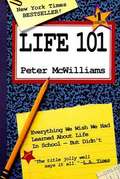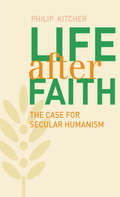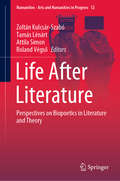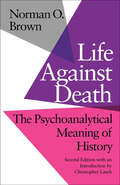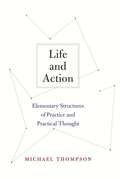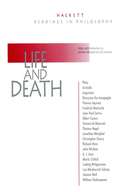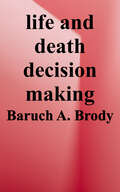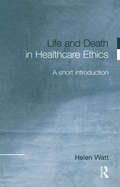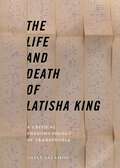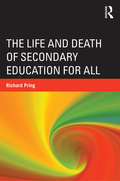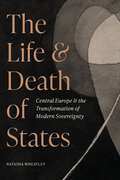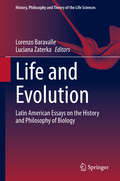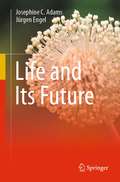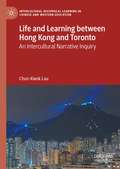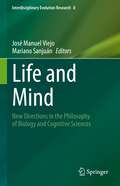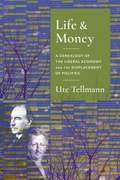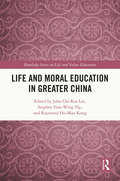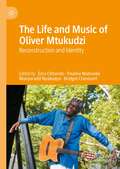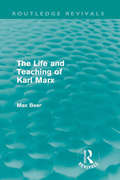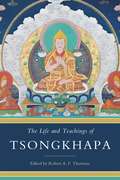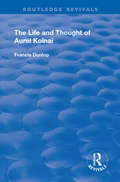- Table View
- List View
The Lies That Bind: Creed, Country, Color, Class, Culture
by Kwame Anthony AppiahFrom the best-selling author of Cosmopolitanism comes this revealing exploration of how the collective identities that shape our polarized world are riddled with contradiction. Who do you think you are? That’s a question bound up in another: What do you think you are? Gender. Religion. Race. Nationality. Class. Culture. Such affiliations give contours to our sense of self, and shape our polarized world. Yet the collective identities they spawn are riddled with contradictions, and cratered with falsehoods. Kwame Anthony Appiah’s The Lies That Bind is an incandescent exploration of the nature and history of the identities that define us. It challenges our assumptions about how identities work. We all know there are conflicts between identities, but Appiah shows how identities are created by conflict. Religion, he demonstrates, gains power because it isn’t primarily about belief. Our everyday notions of race are the detritus of discarded nineteenth-century science. Our cherished concept of the sovereign nation—of self-rule—is incoherent and unstable. Class systems can become entrenched by efforts to reform them. Even the very idea of Western culture is a shimmering mirage. From Anton Wilhelm Amo, the eighteenth-century African child who miraculously became an eminent European philosopher before retiring back to Africa, to Italo Svevo, the literary marvel who changed citizenship without leaving home, to Appiah’s own father, Joseph, an anticolonial firebrand who was ready to give his life for a nation that did not yet exist, Appiah interweaves keen-edged argument with vibrant narratives to expose the myths behind our collective identities. These “mistaken identities,” Appiah explains, can fuel some of our worst atrocities—from chattel slavery to genocide. And yet, he argues that social identities aren’t something we can simply do away with. They can usher in moral progress and bring significance to our lives by connecting the small scale of our daily existence with larger movements, causes, and concerns. Elaborating a bold and clarifying new theory of identity, The Lies That Bind is a ringing philosophical statement for the anxious, conflict-ridden twenty-first century. This book will transform the way we think about who—and what—“we” are.
Life
by William Brown Andrew FabianThe Making of the Modern Law: Legal Treatises, 1800-1926 includes over 20,000 analytical, theoretical and practical works on American and British Law. It includes the writings of major legal theorists, including Sir Edward Coke, Sir William Blackstone, James Fitzjames Stephen, Frederic William Maitland, John Marshall, Joseph Story, Oliver Wendell Holmes, Jr. and Roscoe Pound, among others. Legal Treatises includes casebooks, local practice manuals, form books, works for lay readers, pamphlets, letters, speeches and other works of the most influential writers of their time. It is of great value to researchers of domestic and international law, government and politics, legal history, business and economics, criminology and much more. ++++The below data was compiled from various identification fields in the bibliographic record of this title. This data is provided as an additional tool in helping to insure edition identification:++++Harvard Law School Libraryocm25079967New York : G. P. Putnam's Sons, 1890. iii, 165 p. ; 19 cm.
Life: An Enigma, a Precious Jewel
by Daisaku IkedaThe Cosmos and Life, The Buddhist View of Life, Life and Death.
Life: A Modern Invention
by Davide Tarizzo Mark William EpsteinThe word “biology” was first used to describe the scientific study of life in 1802, and as Davide Tarizzo demonstrates in his reconstruction of the genealogy of the concept of life, our understanding of what being alive means is an equally recent invention. Focusing on the histories of philosophy, science, and biopolitics, he contends that biological life is a metaphysical concept, not a scientific one, and that this notion has gradually permeated both European and Anglophone traditions of thought over the past two centuries.Building on the work undertaken by Foucault in the 1960s and ‘70s, Tarizzo analyzes the slow transformation of eighteenth-century naturalism into a nineteenth-century science of life, exploring the philosophical landscape that engendered biology and precipitated the work of such foundational figures as Georges Cuvier and Charles Darwin. Tarizzo tracks three interrelated themes: first, that the metaphysics of biological life is an extension of the Kantian concept of human will in the field of philosophy; second, that biology and philosophy share the same metaphysical assumptions about life originally advanced by F. W. J. Schelling and adopted by Darwin and his intellectual heirs; and third, that modern biopolitics is dependent on this particularly totalizing view of biological life. Circumventing tired debates about the validity of science and the truth of Darwinian evolution, this book instead envisions and promotes a profound paradigm shift in philosophical and scientific concepts of biological life.
Life 101: Everything We Wish We Had Learned about Life in School-- But Didn't
by Peter McwilliamsTips on how to live a happier life
Life After Faith
by Mr Philip KitcherAlthough there is no shortage of recent books arguing against religion, few offer a positive alternative#151;how anyone might live a fulfilling life without the support of religious beliefs. This enlightening book fills the gap. Philip Kitcher constructs an original and persuasive secular perspective, one that answers human needs, recognizes the objectivity of values, and provides for the universal desire for meaningfulness. Kitcher thoughtfully and sensitively considers how secularism can respond to the worries and challenges that all people confront, including the issue of mortality. He investigates how secular lives compare with those of people who adopt religious doctrines as literal truth, as well as those who embrace less literalistic versions of religion. Whereas religious belief has been important in past times, Kitcher concludes that evolution away from religion is now essential. He envisions the successors to religious life, when the senses of identity and community traditionally fostered by religion will instead draw on a broader range of cultural items#151;those provided by poets, filmmakers, musicians, artists, scientists, and others. With clarity and deep insight, Kitcher reveals the power of secular humanism to encourage fulfilling human lives built on ethical truth.
Life After Literature: Perspectives on Biopoetics in Literature and Theory (Numanities - Arts and Humanities in Progress #12)
by Zoltán Kulcsár-Szabó Tamás Lénárt Attila Simon Roland VégsőThis book offers innovative investigations of the concept of life in art and in theory. It features essays that explore biopoetics and look at how insights from the natural sciences shape research within the humanities. Since literature, works of art, and other cultural products decisively shape our ideas of what it means to be human, the contributors to this volume examine the question of what literature, literary and cultural criticism, and philosophy contribute to the distinctions (or non-distinctions) between human, animal, and vegetal existence. Coverage combines different methodological aspects and addresses a wide field of comparative literary studies. The essays consider the question of language (as a distinctive feature of human existence) in a number of different contexts, which range from Aristotle’s works, through several historical layers of the philosophical discourse on the origins of speech, to modern anthropology, and 20th century continental philosophy. In addition, the volume includes concrete case studies to the current post-humanism debate and provides literary, art historian, and philosophical perspectives on animal studies. The historical multiplicity of the various cultural representations of biological existence (be that human, animal, vegetal, or mixed) might serve as a productive foundation for discussing the nature and forms of literature’s critical contributions to our understanding of these fundamental categories. This volume opens up this subject to students and scholars of literature, art, philosophy, ethics, and cultural studies, and to anyone with a theoretical interest in the questions of life.
Life Against Death: The Psychoanalytical Meaning of History
by Christopher Lasch Norman O. BrownA shocking and extreme interpretation of the father of psychoanalysis.
Life and Action: Elementary Structures of Practice and Practical Thought
by Michael ThompsonIn a book as entertaining as it is enlightening, Kristin Thompson offers the first in-depth analysis of Hollywood's storytelling techniques and how they are used to make complex, easily comprehensible, entertaining films. She also takes on the myth that modern Hollywood films are based on a narrative system radically different from the one in use during the Golden Age of the studio system. Drawing on a wide range of films from the 1920s to the 1990s--from Keaton's Our Hospitality to Casablanca to Terminator 2--Thompson explains such staples of narrative as the goal-oriented protagonist, the double plot-line, and dialogue hooks. She domonstrates that the "three-act structure," a concept widely used by practitioners and media commentators, fails to explain how Hollywood stories are put together. Thompson then demonstrates in detail how classical narrative techniques work in ten box-office and critical successes made since the New Hollywood began in the 1970s: Tootsie, Back to the Future, The Silence of the Lambs, Groundhog Day, Desperately Seeking Susan, Amadeus, The Hunt for Red October, Parenthood, Alien, and Hannah and Her Sisters. In passing, she suggests reasons for the apparent slump in quality in Hollywood films of the 1990s. The results will be of interest to movie fans, scholars, and film practitioners alike.
Life and Death Decision Making
by Baruch A. BrodyIntegrating theory with realistic case studies, this book examines the practical application of moral theory in clinical decision-making. With forty composite cases based on actual clinical experiences, the author describes key moral problems raised by modern medicine. <p><p>He then demonstrates how these dilemmas can be resolved using a problem-solving framework termed pluralistic casuistry. This approach is pluralistic in that it accepts the relevance of many different moral grounds, drawn from different traditional moral theories, each of which may seem self-contained and hence in conflict with other claims. <p><p>Consequently, the author stresses the need to achieve a synthesis of these traditional moral theories, rather than treating them as competitors. His approach is casuistrical in the sense that it considers the important differences between the cases at issue and applies the different moral appeals in different ways. The richly detailed case studies will challenge readers, clarify the ethical issues involved, and indicate how theory and practice can be integrated. Containing a multiplicity of factors faced in clinical crises, they are ideal for group discussions concerning the ways in which theory relates to actual life-or-death situations.
Life and Death in Healthcare Ethics: A Short Introduction
by Helen WattIn a world of rapid technological advances, the moral issues raised by life and death choices in healthcare remain obscure. Life and Death in Healthcare Ethics provides a concise, thoughtful and extremely accessible guide to these moral issues.Helen Watt examines, using real-life cases, the range of choices taken by healthcare professionals, patients and clients which lead to the shortening of life. The topics looked at include:* euthanasia and withdrawal of treatment* the persistent vegetative state* abortion* IVF and cloning* life-saving treatment of pregnant womenClearly written and insightful, Life and Death in Healthcare Ethics presupposes no prior knowledge of philosophy. It will be of interest to anyone confronting healthcare ethics for the first time, or seeking to develop his or her understanding of some core topics in the field.
The Life and Death of Latisha King: A Critical Phenomenology of Transphobia (Sexual Cultures #10)
by Gayle SalamonWhat can the killing of a transgender teen teach us about the violence of misreading gender identity as sexual identity? The Life and Death of Latisha King examines a single incident, the shooting of 15-year-old Latisha King by 14-year-old Brandon McInerney in their junior high school classroom in Oxnard, California in 2008. The press coverage of the shooting, as well as the criminal trial that followed, referred to Latisha, assigned male at birth, as Larry. Unpacking the consequences of representing the victim as Larry, a gay boy, instead of Latisha, a trans girl, Gayle Salamon draws on the resources of feminist phenomenology to analyze what happened in the school and at the trial that followed. In building on the phenomenological concepts of anonymity and comportment, Salamon considers how gender functions in the social world and the dangers of being denied anonymity as both a particularizing and dehumanizing act. Salamon offers close readings of the court transcript and the bodily gestures of the participants in the courtroom to illuminate the ways gender and race were both evoked in and expunged from the narrative of the killing. Across court documents and media coverage, Salamon sheds light on the relation between the speakable and unspeakable in the workings of the transphobic imaginary. Interdisciplinary in both scope and method, the book considers the violences visited upon gender-nonconforming bodies that are surveilled and othered, and the contemporary resonances of the Latisha King killing.
The Life and Death of Secondary Education for All
by Richard PringIs there life after death for secondary education? This book focuses upon the quality of learning. ‘Reform’, so called, too often begins with qualifications, examinations, institutional provision, paths of progression. All those are very important, but their value lies in the support they give to learners and their learning in its different forms. One needs to start with the aims of education and then with what it means to learn (practically, theoretically, morally) and with the very many different needs of the learners. That is what this book aims to do. In so doing, it will be both philosophical in analysis and empirical in example. So much is happening ‘from down below’ that goes unrecognised by policy makers. But innovations too often get hampered by government interventions, by a bureaucratic mentality and by failure to spread good practice. The general argument of the book, therefore, will be illustrated throughout with detailed references to practical developments in schools, colleges, the third sector, youth work, independent training providers and professional bodies – across several countries. The book builds on Education for All, which was based on 14-19 research into secondary education, this book transcends the particularities of England and Wales and digs more deeply into those issues which are at the heart of educational controversy, policy and practices and which survive the transience of political change and controversy. The issues (the aims of education, standards of performance, the consequent vision of learning, the role of teachers, progression from school to higher or further education and into employment, the provision of such education and training and the control of education) are by no means confined to the UK, or to this day and age. Pring identifies similar problems in other countries such as the USA, Germany and France – and indeed in the Greece of Plato and Aristotle and offers solutions with a comparative perspective. It is a critical time. Old patterns of education and its provision are less and less suitable for facing the twenty-first century. The patterns and modes of communication have changed radically in a few years and those changes are quickening in pace. The economic context has been transformed, affecting the skills and knowledge needed for employment. The social world of young people raises fresh demands, hopes and fears. A global recession has affected young people disproportionately making quality of life and self-fulfilment ever more difficult to attain. In addressing ‘learning’ and the ‘learners’ first and foremost, the book will argue for a wider vision of learning and a more varied pattern of provision. Old structures must give way to new.
The Life and Death of States: Central Europe and the Transformation of Modern Sovereignty
by Natasha WheatleyAn intellectual history of sovereignty that reveals how the Habsburg Empire became a crucible for our contemporary world orderSprawled across the heartlands of Europe, the Habsburg Empire resisted all the standard theories of singular sovereignty. The 1848 revolutions sparked decades of heady constitutional experimentation that pushed the very concept of &“the state&” to its limits. This intricate multinational polity became a hothouse for public law and legal philosophy and spawned ideas that still shape our understanding of the sovereign state today. The Life and Death of States traces the history of sovereignty over one hundred tumultuous years, explaining how a regime of nation-states theoretically equal under international law emerged from the ashes of a dynastic empire.Natasha Wheatley shows how a new sort of experimentation began when the First World War brought the Habsburg Empire crashing down: the making of new states. Habsburg lands then became a laboratory for postimperial sovereignty and a new international order, and the results would echo through global debates about decolonization for decades to come. Wheatley explores how the Central European experience opens a unique perspective on a pivotal legal fiction—the supposed juridical immortality of states.A sweeping work of intellectual history, The Life and Death of States offers a penetrating and original analysis of the relationship between sovereignty and time, illustrating how the many deaths and precarious lives of the region&’s states expose the tension between the law&’s need for continuity and history&’s volatility.
Life and Evolution: Latin American Essays on the History and Philosophy of Biology (History, Philosophy and Theory of the Life Sciences #26)
by Lorenzo Baravalle Luciana ZaterkaThis book offers to the international reader a collection of original articles of some of the most skillful historians and philosophers of biology currently working in Latin American universities. During the last decades, increasing attention has been paid in Latin America to the history and philosophy of biology, but since many local authors prefer to write in Spanish or in Portuguese, their ideas have barely crossed the boundaries of the continent. This volume aims to remedy this state of things, providing a good sample of this production to the English speaking readers, bringing together contributions from researchers working in Brazilian, Argentinean, Chilean, Colombian and Mexican universities. The stress on the regional provenance of the authors is not intended to suggest the existence of something like a Latin American history and philosophy of biology, supposedly endowed with distinctive features. On the contrary, the editors firmly believe that advances in this field can be achieved only by stimulating the integration in the international debate. Based on this assumption, the book focuses on two topics, life and evolution, and presents a selection of contributions addressing issues such as the history of the concept of life, the philosophical reflection on life manipulation and life extension, the structure and development of evolutionary theory as well as human evolution. Life and Evolution – Latin American Essays on the History and Philosophy of Biology will provide the international reader with a rather complete picture of the ongoing research in the history and philosophy of biology in Latin America, offering a snapshot of this dynamic community. It will also contribute to contextualize and develop the debate concerning life and evolution, and the relation between the two phenomena.
Life and Its Future
by Josephine C. Adams Jürgen EngelThis book is aimed at those who wish to understand more about the molecular basis of life and how life on earth may change in coming centuries. Readers of this book will gain knowledge of how life began on Earth, the natural processes that have led to the great diversity of biological organisms that exist today, recent research into the possibility of life on other planets, and how the future of life on earth faces unprecedented pressures from human-made activities. Readers will obtain a perspective on the potential risks of chemical or nuclear warfare, and the ever-increasing risks from human activities that are causing pollution and climate change with global heating. Readers will also learn about ongoing research efforts to generate “designer lifeforms” through synthetic biology and applications of artificial intelligence. The book makes an integrated, up-to-date, overview of topics often considered as separate fields. It should be valuable to students, teachers, and people who are concerned about the future of life.
Life and Learning Between Hong Kong and Toronto: An Intercultural Narrative Inquiry (Intercultural Reciprocal Learning in Chinese and Western Education)
by Chun-Kwok LauThis book presents a narrative inquiry into the cross-cultural educational experiences of a family living in Hong Kong and Toronto, Canada. At heart a go-and-return story, Lau reflects on the difficulties of adjusting to the different practices of teaching and learning in two places with their own distinctive cultures. Ever more prescient now amid the current social and political upheavals in Hong Kong and around the world, the book considers the profound impacts such transitions have on families. By delving into the challenges of living, working, and learning across cultures, he reflects upon the deep-rooted values in both family and school landscapes to gain new insights about educational and cultural practices in Hong Kong and Toronto.
Life and Mind: New Directions in the Philosophy of Biology and Cognitive Sciences (Interdisciplinary Evolution Research #8)
by José Manuel Viejo Mariano SanjuánThis volume provides a broad overview of some cutting-edge philosophical topics of growing interest at the juncture between cognitive science and biology. The main goal is not to integrate the variety of approaches into a single account, but rather to offer diverse perspectives on a collection of selected biological issues of particular philosophical relevance, reflecting the plurality of current research in these areas. Four conceptual vectors give this volume its coherence: Animal and human cognition: With respect to animal cognition, this volume focuses on self-awareness and methodological flaws in the science of animal consciousness. Regarding human cognition, the authors of this volume address various aspects of so-called 4E cognition. Genetics: The role of genes in the development of mind and life has always been philosophically controversial. In this volume, the authors address the possibility of considering post-genomic genes as natural kinds and the proper analysis of the concept of genotype. Teleology: This volume addresses issues of evolutionary causality and teleosemantics, as well as questions relating to biological teleology and regulation. Evolution: Evolution exemplifies better than any other concept the convergence point between philosophy, biology and cognitive sciences. Among other things, the volume deals with the origin of novelties in evolutionary processes from various viewpoints (e.g., cultural evolution and developmental plasticity). Despite their disparity, all these topics belong to a common naturalistic framework. By presenting them in a single volume, the editors want to emphasize the need to always conduct philosophical research on mind and life with tangential domains in mind.This book is a valuable resource for students and researchers of philosophy with a special interest in life, cognition, and evolution, as well as for biologists and cognitive scientists.
Life and Money: The Genealogy of the Liberal Economy and the Displacement of Politics (Columbia Studies in Political Thought / Political History)
by Ute Astrid TellmannLife and Money uncovers the contentious history of the boundary between economy and politics in liberalism. Ute Tellmann traces the shifting ontologies for defining economic necessity. She argues that our understanding of the malleability of economic relations has been displaced by colonial hierarchies of civilization and the biopolitics of the nation. Bringing economics into conversation with political theory, cultural economy, postcolonial thought, and history, Tellmann gives a radically novel interpretation of scarcity and money in terms of materiality, temporality, and affect.The book investigates the conceptual shifts regarding economic order during two moments of profound crisis in the history of liberalism. In the wake of the French Revolution, Thomas Robert Malthus’s notion of population linked liberalism to a sense of economic necessity that stands counter to political promises of equality. During the Great Depression, John Maynard Keynes’s writings on money proved crucial for the invention of macroeconomic theory and signaled the birth of the managed economy. Both periods, Tellmann shows, entail a displacement of the malleability of the economic. By tracing this conceptual history, Life and Money opens up liberalism, including our neoliberal present, to a new sense of economic and political possibility.
Life and Moral Education in Greater China (Routledge Series on Life and Values Education)
by John Chi-Kin Lee Stephen Yam-Wing Yip Raymond Ho-Man KongArguing for life, moral and values education as a bedrock for the original goals of school education, this monograph explores how life and values education is conceptualised and imparted in Greater China. Under a globalized, transnational, and technological world, where there has been an increase in people’s mobility, in information and cultural exchanges, there is also a growing emphasis on personal and professional ethics. Against this context, life, moral and values education has gained attention for its impact on shaping students' characters as future citizens. However, the cultivation of these values is made deeply diversified and complex by varying interpretations of "life education" and "values education" across societies, given that different societies are influenced by different socio-cultural traditions, educational ideologies and religious beliefs. The means and approaches towards life education also vary vastly from formal school subjects, school-based programmes as well as teachers and peers’ role modelling, community services, extra-curricular activities, school discipline, charity work, pastoral care, and school ethos. Recognising this inherent diversity and complexity in the approach to and the dissemination of life education, the contributors to this volume survey the practice of life education in Greater China so far, suggesting that life education is most effective when it is "diversified, dynamic and developmental across contexts". This book will provide the opportunity for engaging in important and serious debates about the future and the values that will underpin it and will prove of special interest to scholars and practitioners working on education policies curriculum development and teacher education in Greater China.
The Life and Music of Oliver Mtukudzi: Reconstruction and Identity
by Ezra Chitando Pauline Mateveke Munyaradzi Nyakudya Bridget ChinouririThis book is a critical reflection on the life and career of the late legendary Zimbabwean music icon, Oliver “Tuku” Mtukudzi, and his contribution towards the reconstruction of Zimbabwe, Africa and the globe at large. Mtukudzi was a musician, philosopher, and human rights activist who espoused the agenda of reconstruction in order to bring about a better world, proposing personal, cultural, political, religious and global reconstruction. With twenty original chapters, this vibrant volume examines various themes and dimensions of Mtukudzi’s distinguished life and career, notably, how his music has been a powerful vehicle for societal reconstruction and cultural rejuvenation, specifically speaking to issues of culture, human rights, governance, peacebuilding, religion and identity, humanism, gender and politics, among others. The contributors explore the art of performance in Mtukudzi’s music and acting career, and how this facilitated his reconstruction agenda, offering fresh and compelling perspectives into the role of performing artists and cultural workers such as Mtukudzi in presenting models for reconstructing the world.
The Life and Teaching of Karl Marx (Routledge Revivals)
by Max BeerFirst published in English in 1921, this work was originally written by renowned Marxist historian Max Beer to commemorate the centenary of Marx’s birth. It is a definitive biography, full of interesting personal details and a clear and comprehensive account of Marx’s economic and historical doctrines A special feature of this unique work is the new light thrown on Marx’s attitude to the "Dictatorship of the Proletariat" and Bolshevist methods generally.
The Life and Teachings of Tsongkhapa
by Robert A.F. ThurmanA must-read for students of Tibetan Buddhism, The Life and Teachings of Tsongkhapa provides a thorough exploration of the great teacher’s wisdom.In The Life and Teachings of Tsongkhapa, you’ll discover Tsongkhapa’s teachings on transcendental aspects of sutra, tantra, and insight meditation, mystic conversations with great bodhisattvas, deeply spiritual songs in praise of Manjushri and Maitreya, and much more. The anthology concludes with a number of intensely moving songs in praise of Tsongkhapa and his immeasurable contribution to Tibetan Buddhism by such realized and remarkable Tibetan Buddhists as the Seventh Dalai Lama, the Eighth Karmapa, Dulnagpa Palden, and Khedrup Je. This edition has been substantially corrected by Robert Thurman and contains a new introduction and a bibliography of all the works referenced in the text.
The Life and Thought of Aurel Kolnai
by Francis DunlopThis title was first published in 2002: ’I sincerely believe that Dr Kolnai is one of the most original and stimulating thinkers in the field of political philosophy alive today.’ Karl Popper Kolnai's moral and political thought was developed against the background of Liberal and then Bolshevist revolutions in Hungary, the gradual move towards fascism in twenties and thirties Vienna, and the progress of the Second World War as seen from the USA. Born a Jew, he became a Roman Catholic, and lived successively in Hungary, Austria, France, the USA, Canada and England. He remained, throughout his extraordinary life, a passionate believer in reason and common sense, and the sworn enemy of all philosophical and political systems. Study of Kolnai has been hampered by political developments, his own peripatetic life, and the fact that his writings appeared in five different languages, yet interest in Kolnai is now growing. This book offers the first comprehensive picture of Kolnai's complete works and life. Dunlop presents Kolnai the man in his social and political setting, and offers an accessible exploration of all his writings, whether published or not, including translated passages from papers and letters in Kolnai's various languages. Including a selective bibliography of Kolnai's works, this book presents an important study of this unique political and moral philosopher, showing his relevance in contemporary philosophical thought.
